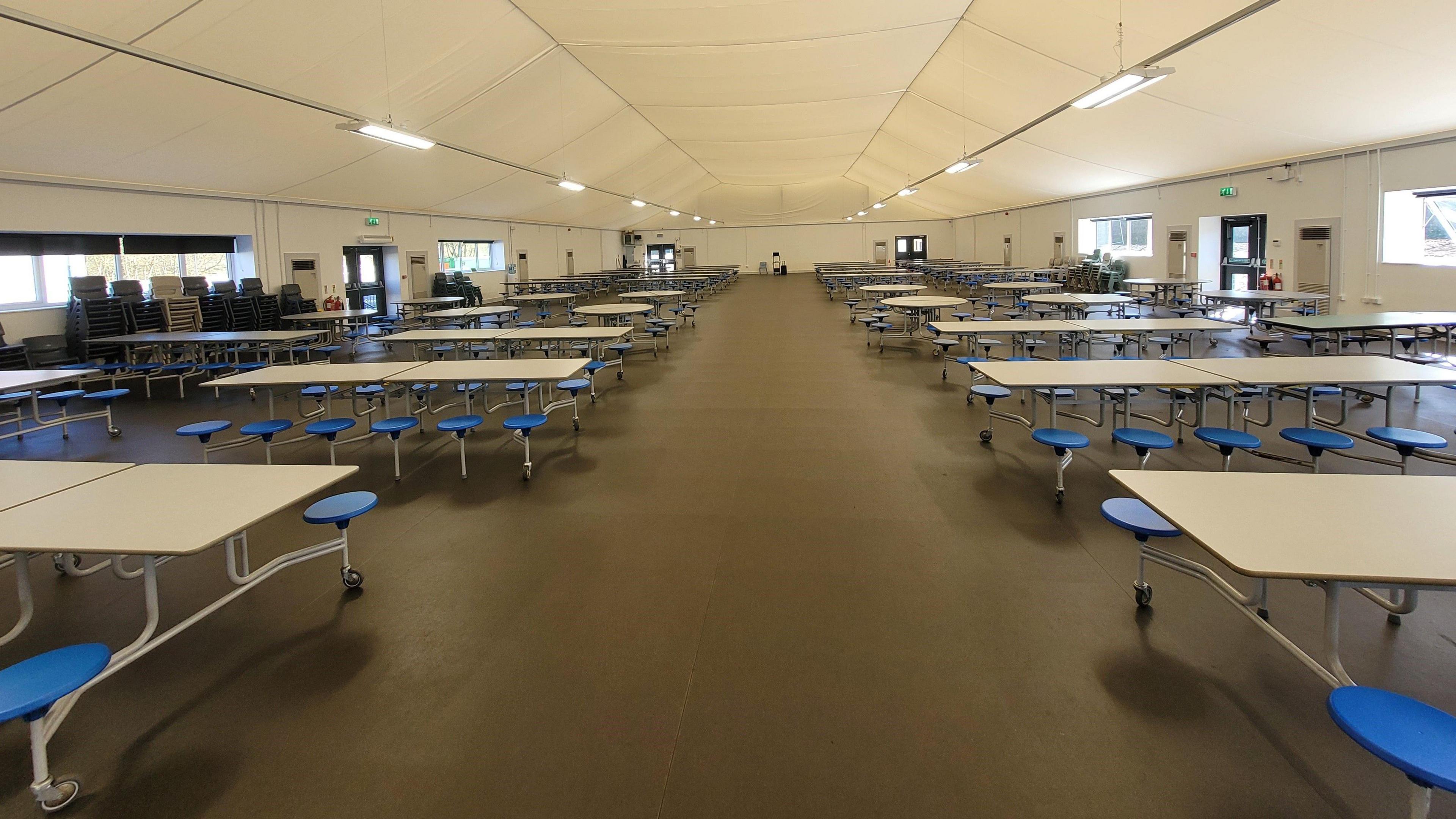Raac found in prison housing blocks

The prison said it was working to make accommodation safe
- Published
A number of prison buildings have been closed after potentially dangerous concrete was discovered.
HMP Northumberland said Raac, or reinforced autoclaved aerated concrete, had been found in two housing blocks.
Sodexo, the private firm which runs the prison, has not said whether any inmates needed to be moved to other jails.
The company said it had worked with specialists to make sure the facility remained a "safe and secure environment".
The category C prison can hold up to 1,348 men but its capacity has been reduced by 112 following the closure of the two blocks for repairs.
Sodexo said it was opening a 60-bed unit this week, but the new unit was part of pre-planned work and was not related to the site's Raac issues.
'Safe and secure'
Raac has been found in five prisons, external - HMP Onley, HMP Portland, HMP Leyhill, HMP Parkhurst and HMP Northumberland - and one probation site in Cardiff.
From the 1950s to the 1990s the lightweight material was used in floors, walls and flat roofing.
It is cheaper than standard concrete but only has a lifespan of about 30 years and is susceptible to structural failure when exposed to moisture.
The concrete was commonly used in the construction of schools and, in September last year, it was confirmed 231 in England contained the material.
A Sodexo spokesperson said: "We are working closely with the prison service and other specialists to make sure that all appropriate measures remain in place to maintain a safe and secure environment for those who live and work in the prison."
Follow BBC North East on X (formerly Twitter), external, Facebook, external and Instagram, external. Send your story ideas to northeastandcumbria@bbc.co.uk.
Related topics
More stories from BBC North East and Cumbria
- Published19 September 2023

- Published25 March 2024
